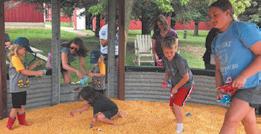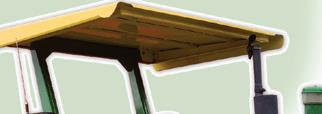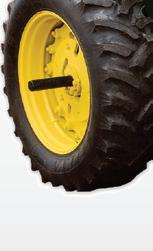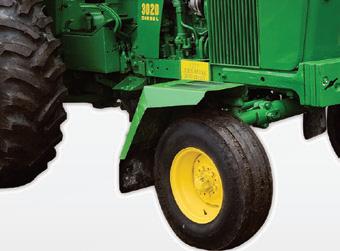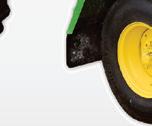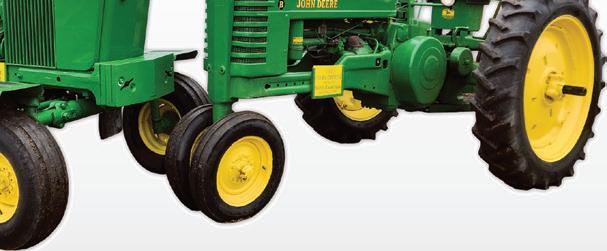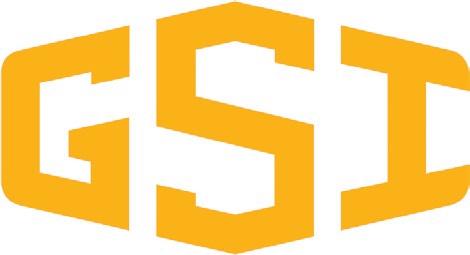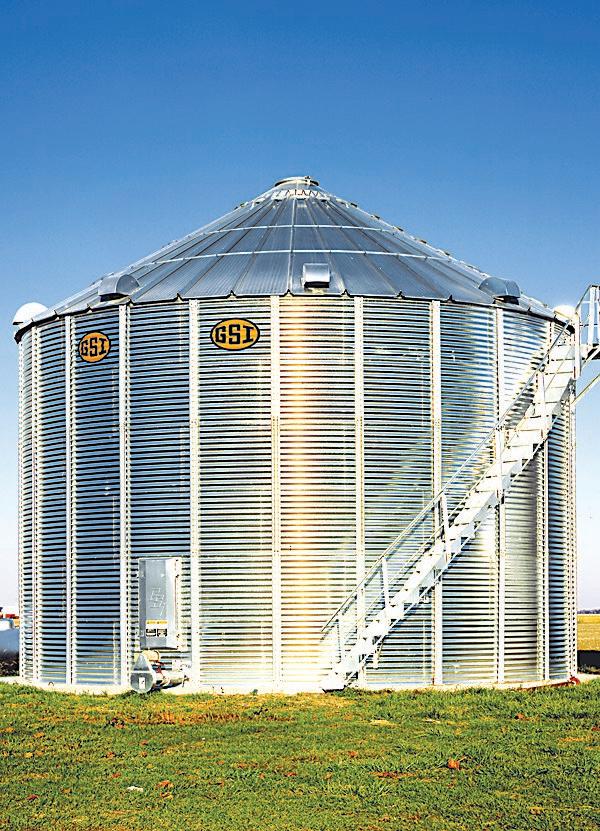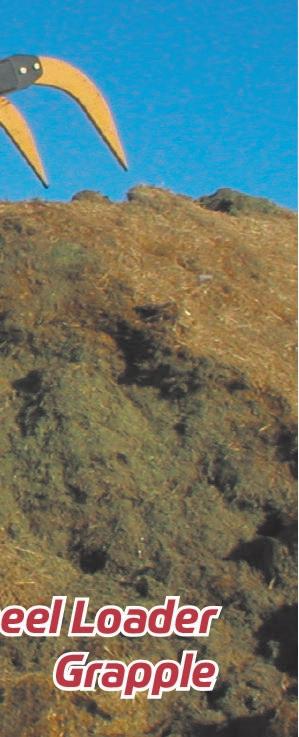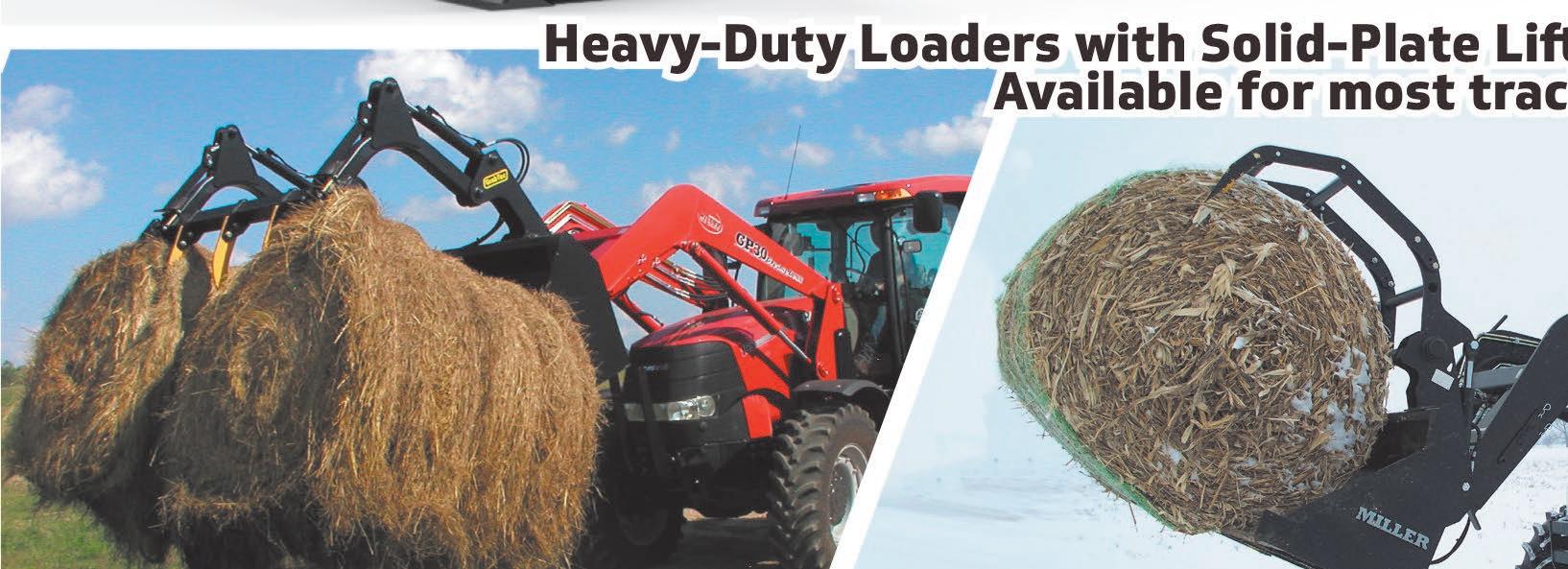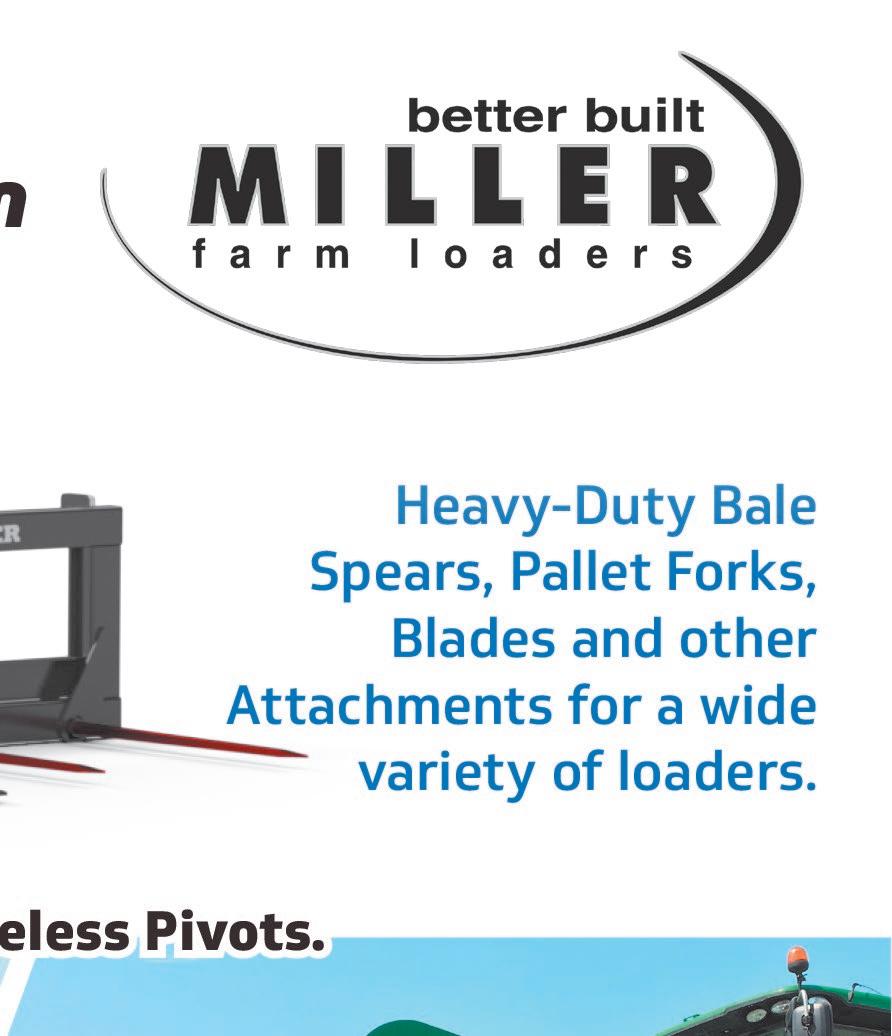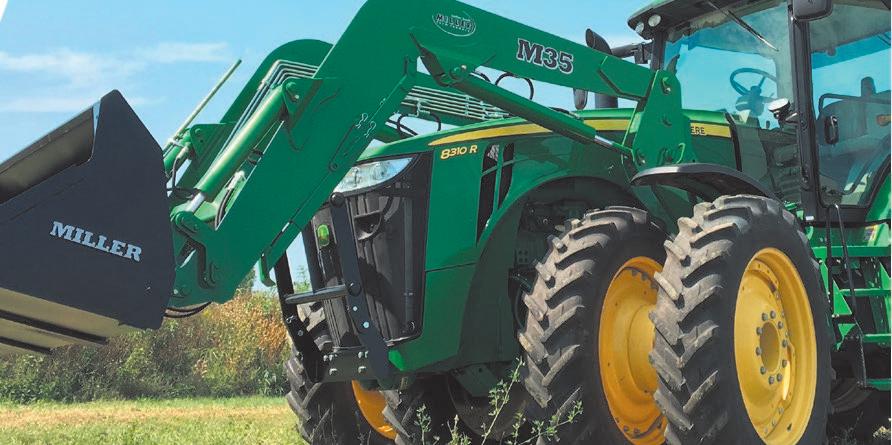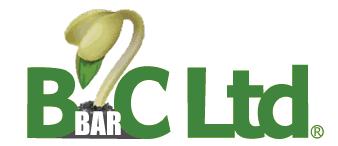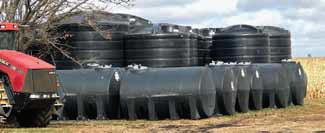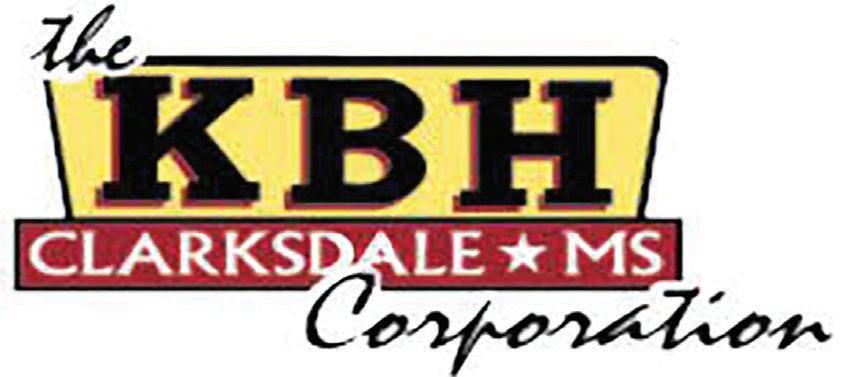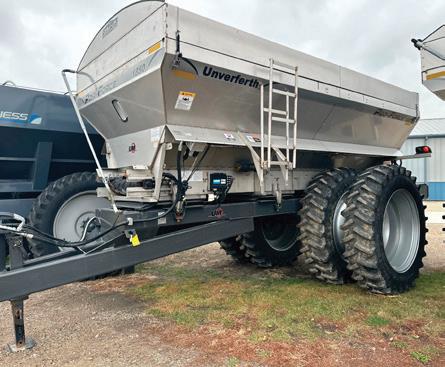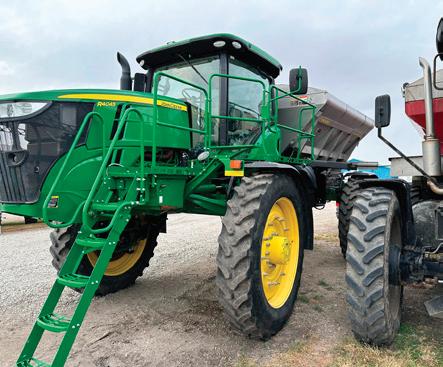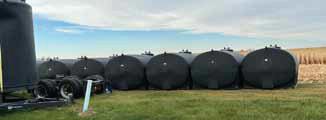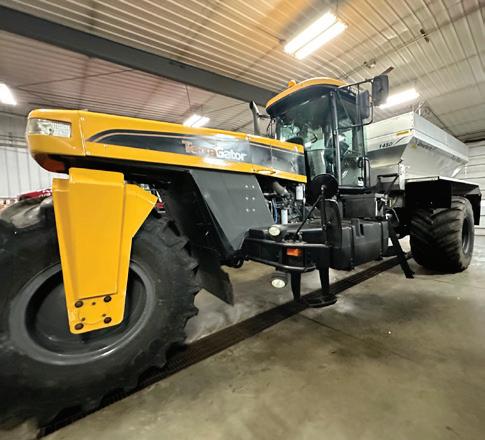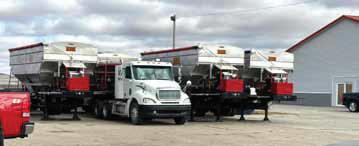
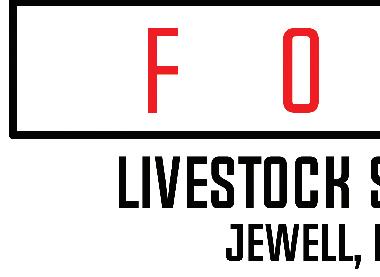



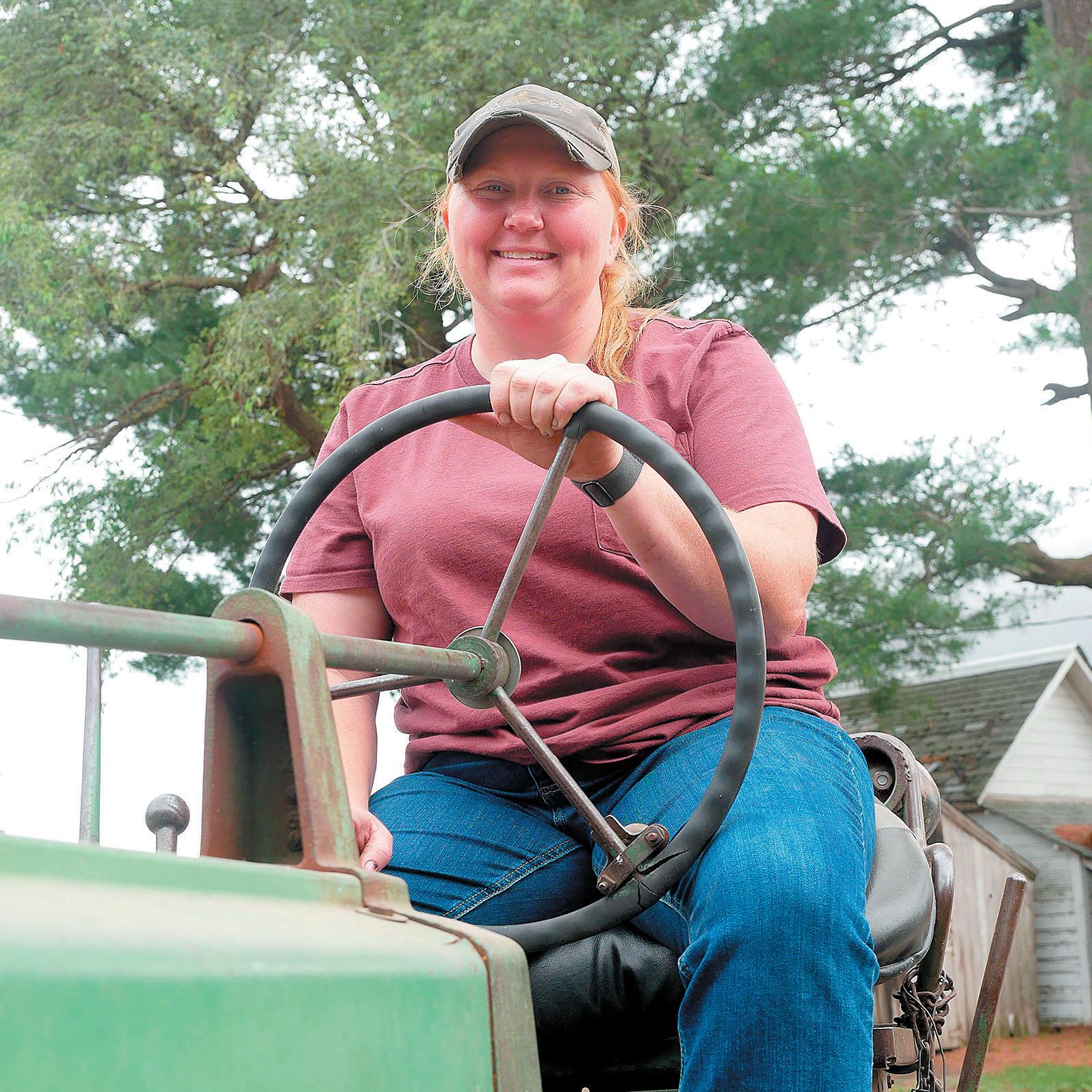














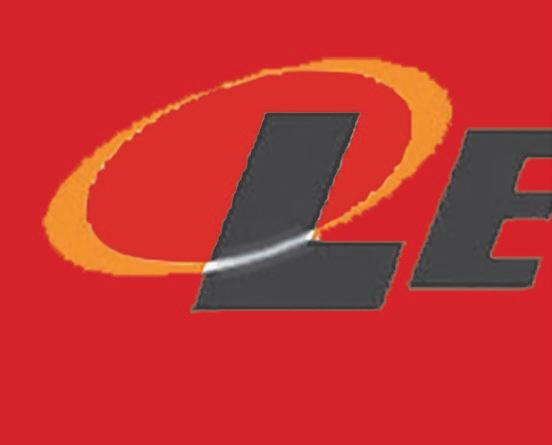



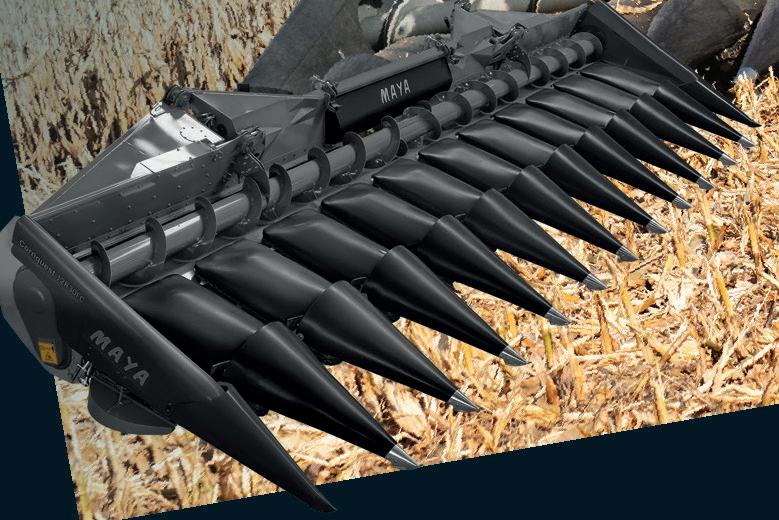















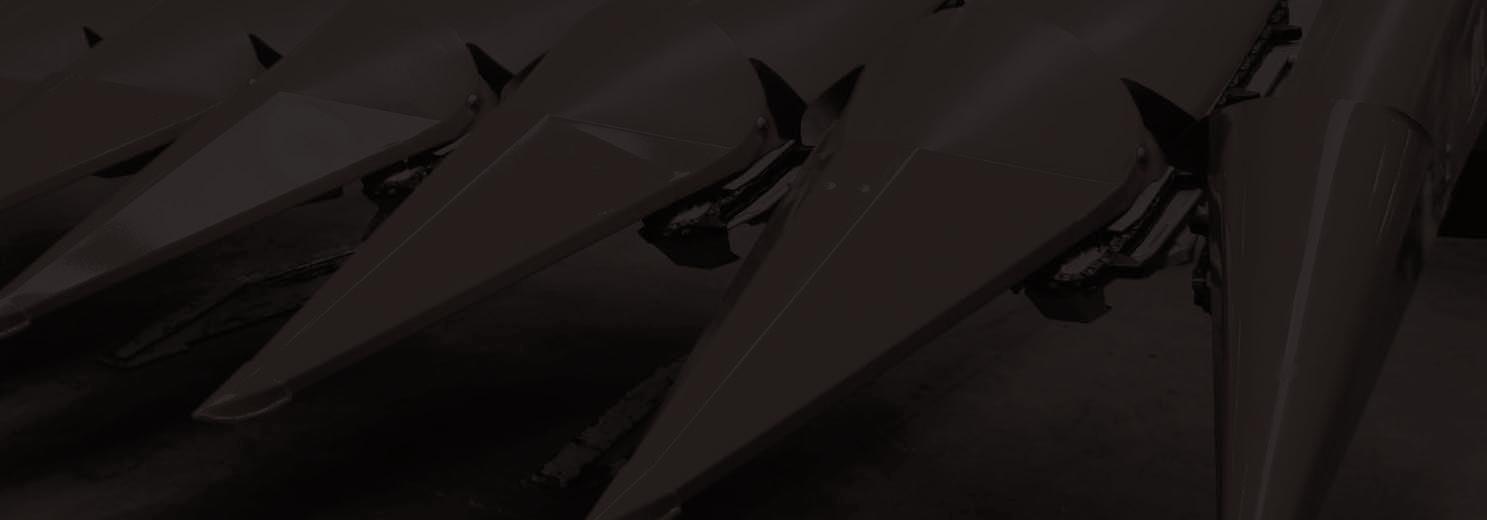












































From the farm to the classroom, from Iowa to Africa, Sarah Tweeten shares her knowledge of agriculture wherever she goes — even as she continues to learn herself
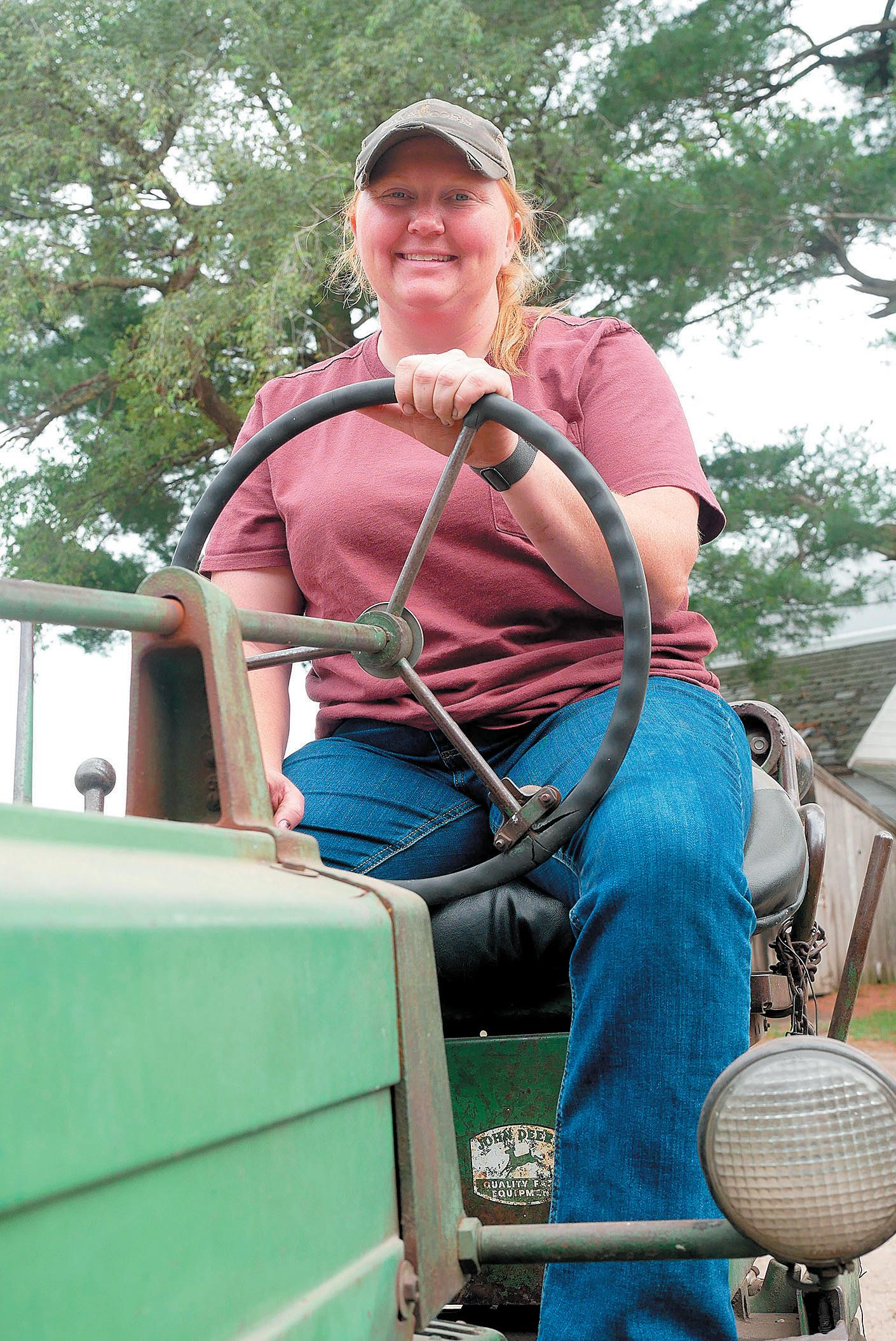

















By CLAYTON RYE Farm News writer
KENSETT — Sarah Tweeten remembers walking into a farm equipment dealership, stepping up to the parts counter and asking for a part she needed. The parts man had a question for her.
“Does your dad know the model of tractor these parts are for?”
That question was not necessary, because the young woman at the parts counter not only knew the model of the tractor, but she also drove it frequently on the Tweeten family farm doing farm work.
At age 32, Sarah Tweeten has not only covered a lot of ground on the Tweeten farm, but in many other places since graduating from Iowa State University with a degree in ag communications.
“I always wanted to be in agriculture,” she said.
Sarah Tweeten is the second child and first daughter born to Ben and Julie Tweeten’s four children. Following graduation from Iowa State, Sarah Tweeten joined Agri-Corps, which sent her to Ghana in west Africa. where she worked with local farmers, taught agriculture, and started a 4-H club. Farming in Ghana is not looked upon as a respectable occupation, but is instead viewed as a poor man’s job and is only a last resort.
“It’s subsistence farming,” said Sarah Tweeten. “It’s just a way to feed your family.”
She organized a field trip for the students to an irrigated farm located near a dam. There the students learned that growing crops in large quantities can be a source of income. As a result, some students went on to study
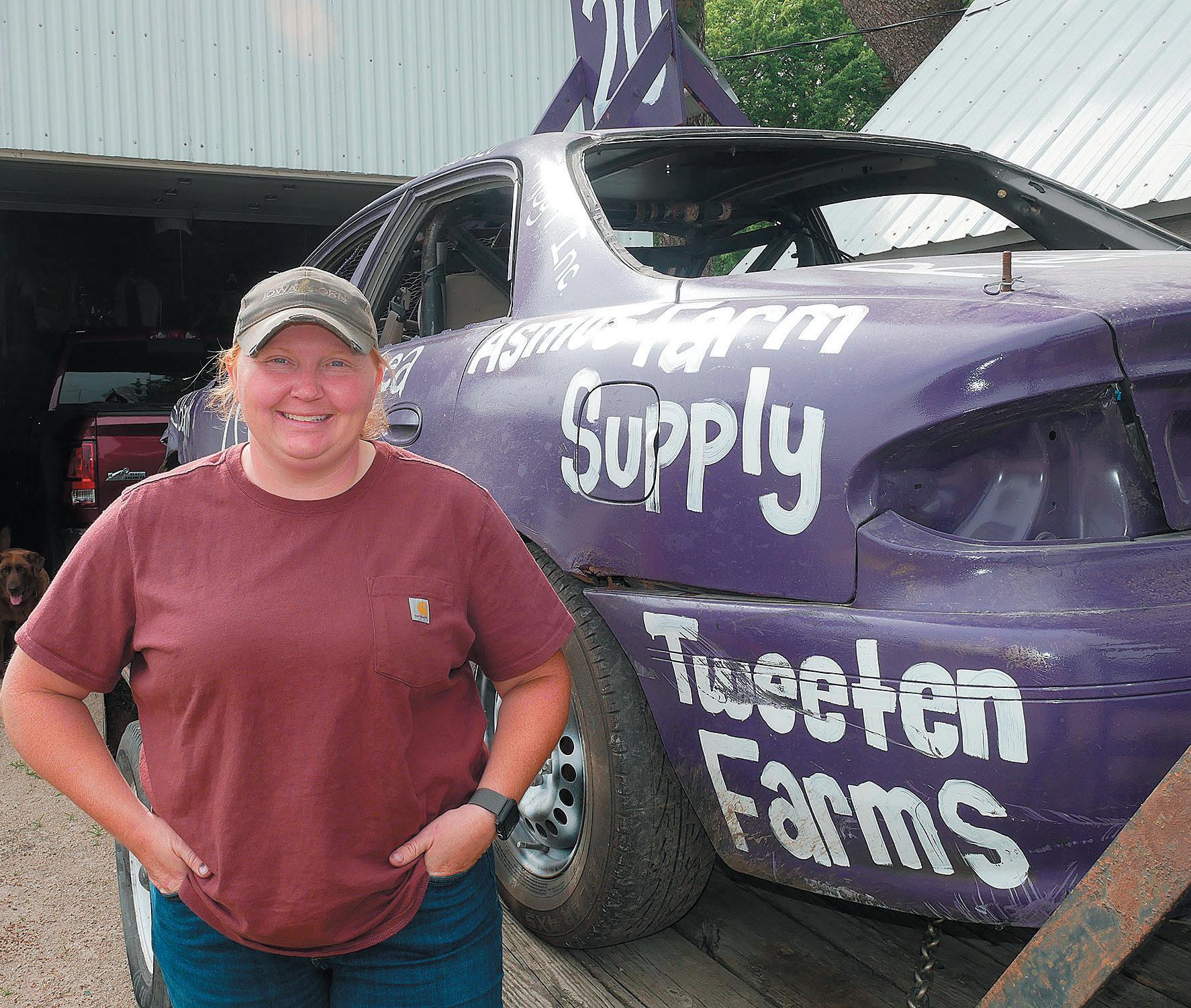
agriculture, eventually being employed by the government, which wanted to make use of their knowledge.
Her 4-H club learned about public speaking and competed with another 4-H club in speech competition. She told of seeing a young girl who was fighting fear and nervousness ahead of delivering her speech. When she finished speaking, Sarah Tweeten said she could see the proud look of accomplishment on the girl’s face.
Looking back at her one and half years in Ghana, Sarah Tweeten said, “It was a really good experience. I walked away learning more than I taught.”
Upon returning to the United States, she put her college degree to good use, working for Worth County Extension as office
manager for just over a year and then for Cerro Gordo County Farm Bureau for three years. She was office administrator at the Farm Bureau and a classroom instructor for North Iowa Ag in the Classroom. Ag In the Classroom exposes elementary school students to farming — teaching that it’s not just about profits, but about animal welfare and stewardship. Students arrive on a field day where they can see and touch livestock, sit on a tractor, and more.
Sarah Tweeten was a district field manager for the Iowa Corn Growers, covering 11 north Iowa counties.
“I was boots on the ground for this area,” said Sarah Tweeten. “I was the face of the Corn Growers Association.”
-Farm News photo by
Clayton Rye
SARAH TWEETEN drove this car at the Worth County Fair in the figure 8 race this summer, coming in second in one race and first in the feature race. The race benefits the Worth County Relay For Life.
In 2019, her older brother Ben Tweeten, who was farming with their father for about five years, decided he did not want to pursue a career in farming. The parents asked if any of the other three children would be interested in being part of the farm.
She was in her second year with the Corn Growers Association when Brian Tweeten asked his daughter if she was interested in being a full-time farmer. She agreed, and a partnership between Brian Tweeten, his brother Roger Tweeten, and Sarah Tweeten was formed. She receives a part of her father's share of the partnership each year as she assumes ownership.
“Each year I get a larger part of the partnership,” she said.
Sarah Tweeten markets her portion of the soybeans on her own, while her father Brian markets the corn.
“I have skin in the game,” said Sarah Tweeten. “I learn from my dad.”
She attends grain marketing workshops sponsored by Farm Credit to learn more about grain marketing.
“It’s really, really useful,” she said.
During the winter months, she works two days a week at Kittleson Brothers in St. Ansgar, grading potatoes and onions, washing potatoes, and packing orders. The other days of the week are spent repairing and preparing farm machinery.
Sarah Tweeten also covers ground driving a car in the figure eight race during the Worth County Fair. At this year’s fair, Sarah Tweeten placed second in the first race and first place in the feature. Her first time driving in the race was four years ago. Tweeten Farms’ entry is in honor of her sister Rachel, who was diagnosed with brain cancer at age 4 and is now cancer free after 18 years.
The figure eight race is used to raise money for the Worth County Relay For Life; this year it raised $1,450.


•
•
•
•
•
•
•
•
•













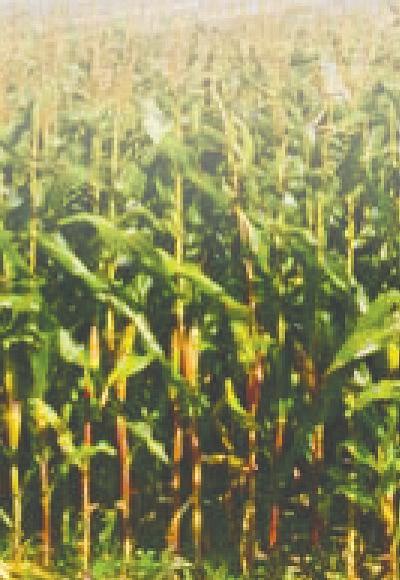

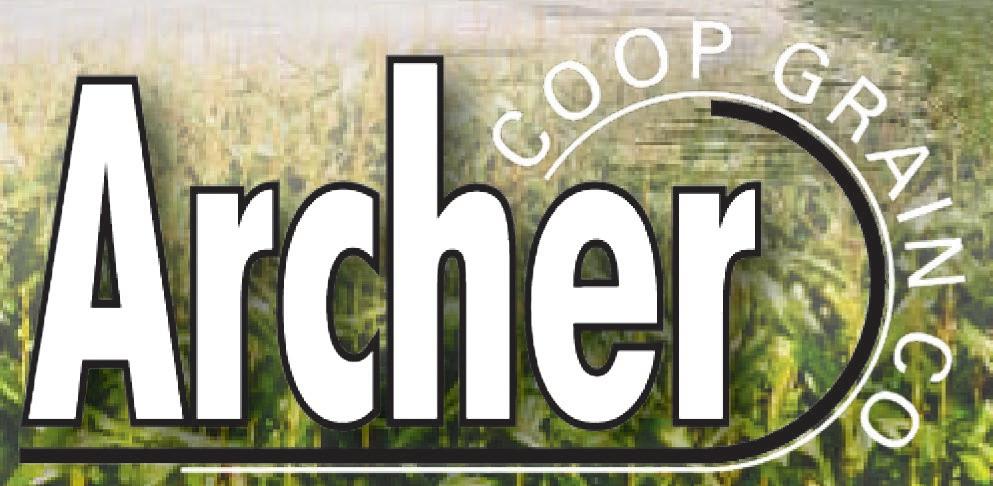
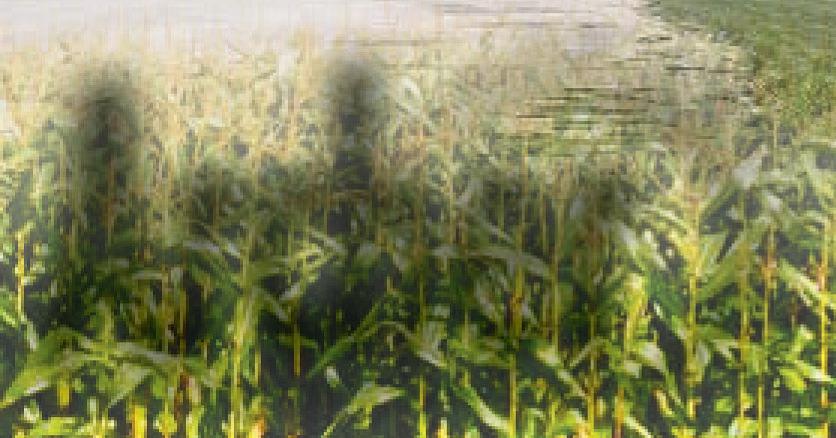





If you have a fi replace that burns wood, you know that it loses all of its heat up the chimney. Rick Titus has a wood burning insert that will burn with the effi ciency of a wood stove and fi t inside your fi replace so it keeps your fi replace look, heating up to 1,000-2,000 sq. ft. The insert could heat up to 2,000 sq. ft. and burn a third of the wood!
If you have a gas log in your fi replace it also sends all of its heat up the chimney. Rick has Vent-Free gas logs that can burn as effi ciently as a gas cookstove and burn with the damper closed, thus keeping all the heat in the house, heating up to 1,000 sq. ft. of your home
So no matter what kind of fireplace you may have, Rick has an efficient solution for it. Call Rick or email him at yahtitus@gmail. com or go to his website below. Rick even has new fireplaces and wood stoves that can heat your home even during a power outage.
Jagger Ferrie became hooked on ag after joining South Hamilton's FFA. Now he serves as the North Central District vice president of the Iowa organization.
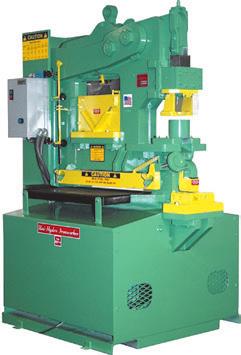




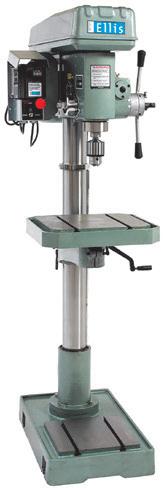
By LORI BERGLUND Farm News writer
JEWELL — There’s something about a sea of blue and gold jackets that almost never fails to inspire an inner quest for leadership, to be a part of something working to make a difference in the world.
Jagger Ferrie almost didn’t join FFA. He hadn’t even planned to take any agriculture classes at South Hamilton High School in Jewell until a friend encouraged him to give it a try. The son of Nathan and Lindsey Ferrie of Story City, Ferrie looks back on the decision to take an ag class as one of the best he has made in his young life.
“It was one of those things that just kind of fell into my lap,” said Ferrie, who was elected state vice president for the North Central District at the Iowa FFA convention this spring. “I actually wasn’t signed up for an ag class until a friend told me, ‘You have to take this with me.’ After that I fell in love with the class.”
His Ag Science I class focused on the fundamentals of agriculture, including both agronomy and animal science. Ferrie enjoyed the class, but was really hooked on FFA after joining thousands of FFA’ers from across the nation at the annual convention in Indianapolis, Indiana.
“I went to the national convention and saw everyone wearing the blue jackets, all believing in agriculture, and I knew I was in the right place,” Ferrie recalled.
Four years later, Ferrie is capping off a busy career with the South Hamilton FFA. A 2025 South Hamilton grad, he has served his local chapter as secretary, vice president, and president during his senior year. Prior to being elected a state officer this spring, he was vice

senior FFA leaders together to learn from each other. Networking such as this can continue on as FFA’ers move on to professional lives.
Ferrie will be a freshman at Iowa State University in the fall. He is majoring in horticulture with an emphasis on athletic turfgrass management. Ferrie envisions a career working for the NFL or Major League Baseball managing turfgrass.
Enrolling at Iowa State will have the added benefit of being able to work more closely with fellow state officers, as nearly all of the nine-member officer team are also Iowa Staters.
president for the North Central District. Now as state officer, he serves in a dual role as North Central District president and state vice president. Ferrie is looking forward to a busy year ahead, serving FFA and getting to know members across the state.
“Looking forward, I’m very excited to start the chapter work season, which is where we go to different chapters and talk to members about FFA and agriculture, as well as their own interests,” Ferrie said.
The road to being elected to the state officer team was a grueling one, but well worth the effort, according to Ferrie.
“It’s a long, two-day process of tests, essays, interviewing and discussions with industry professionals,” Ferrie said.
“It started off really nervewracking. I was very nervous, but then you start talking to people, and thinking about what you are learning and doing, and you realize this isn’t so bad.”
Of course, it really was a four-year road, working hard and participating in a number of leadership-building opportunities that FFA offers, that prepared him for the election process.
“When you prepare for it for months on end, you just have to be able to sit and say, ‘I got this. I know what I’m doing,’” Ferrie said.
With his election just a few months ago, Ferrie has already been busy with fellow state officers in training and various career development events. It will be a busy year of travel
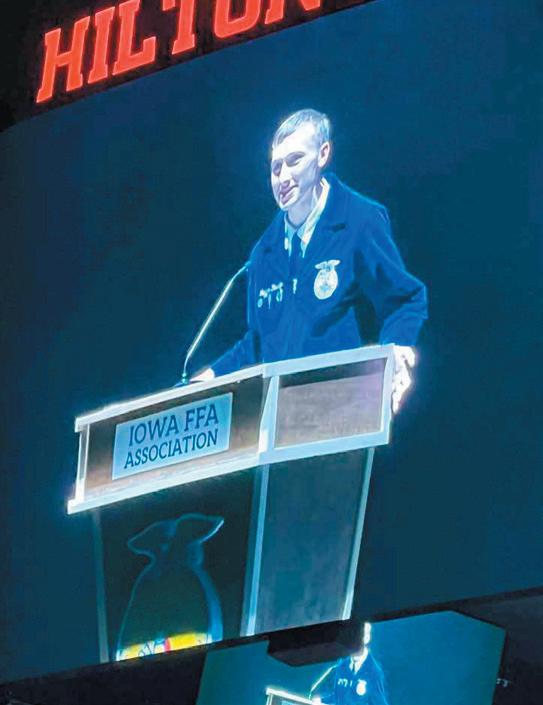
around the state, and even around the nation.
The summer will bring more leadership-building opportunities as Ferrie travels to the nation’s capital for a gathering of FFA leaders from across the nation,
“The Washington Leadership Conference is in July,” Ferrie said. “That’s a really amazing experience where members can work on what they want to bring back to their community and be better service project leaders.”
As a state officer, Ferrie will also be attending the National FFA Summit, which draws
“We all really click,” Ferrie said of his fellow officers. “I look forward to working with them more closely and getting to know them even better.”
Because FFA membership can continue through college, there’s still much more ahead for Ferrie in his career wearing the blue jacket. He already knows what a difference FFA has made in his life.
“Before I joined FFA, I was a really quiet, kind of a timid person,” he said. “From FFA, I’ve definitely learned how to be more outgoing and voice my own opinion. I’ve learned it’s OK to show who you are and what you believe. Chances are, someone agrees with you, and it only takes one person to stand up and say, ‘This is what I think.’”
The year ahead as state officer will certainly hold many challenges and surprises, but Ferrie is confident that the experience will leave him a better man, more able to take on the future as a person ready to serve.
“Already, being a state officer is shaping and molding me to be a better leader and to have really good communication skills,” he said.




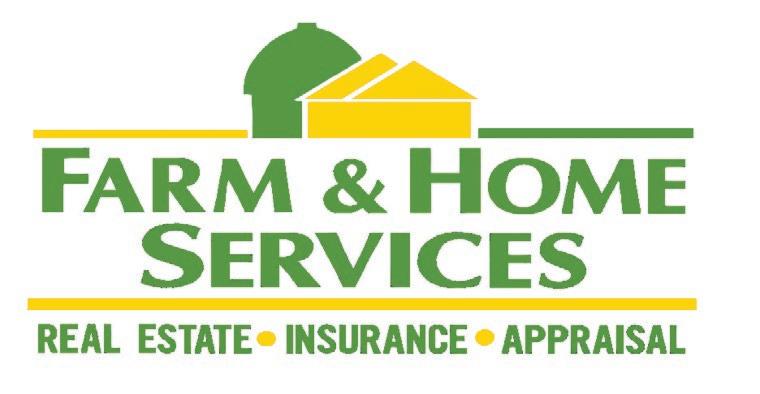
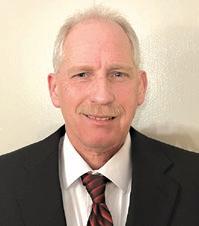
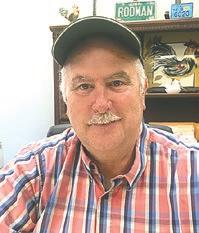


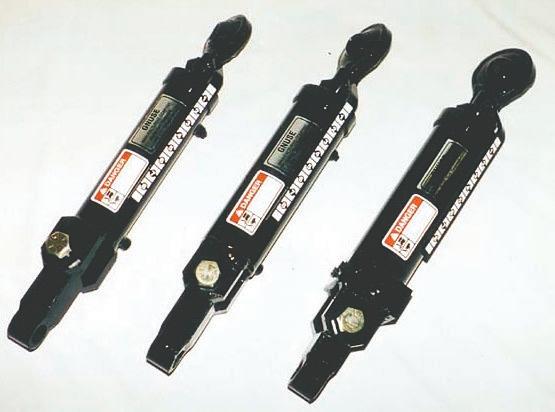




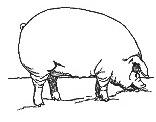
Morgan Clabaugh has found the best of both worlds as the welding technology instructor at Iowa Lakes Community College — where she melds her passion for welding and teaching into a work of art
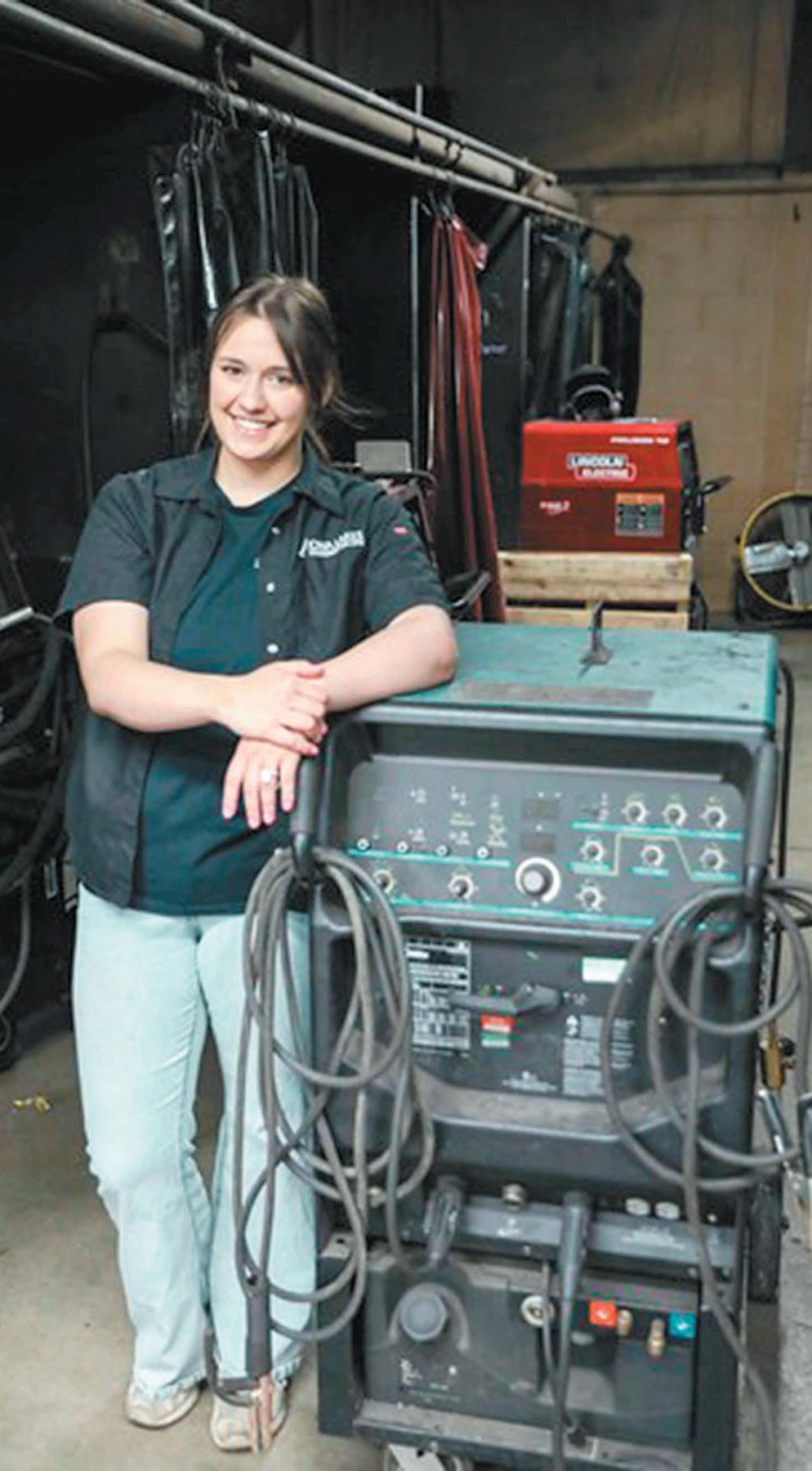
“I was drawn to the artistry of welding — the precision it takes to create a clean, beautiful weld, and the attention to detail required to design and fabricate something unique.”
By KAREN SCHWALLER
News writer
Morgan Clabaugh said she has always had a passion for building and creating, starting with DIY projects through 4-H and FFA. She was at Southeast Polk High School when she decided — just for fun — to take a welding class with her best friend.
Today, Clabaugh is the welding technology coordinator/instructor at Iowa Lakes Community College in Emmetsburg.
“I quickly fell in love with (welding). I wasn’t a natural at first; it took a lot of hard work and persistence to develop my skills. But once things clicked, it was incredibly rewarding,” she said. “I was drawn to the artistry of welding — the precision it takes to create a clean, beautiful weld, and the attention to detail required to design and fabricate something unique. Once I discovered the finesse behind welding, I knew this was what I wanted to do professionally.”
Clabaugh graduated from high school in 2019 and attended Des Moines Area Community College, pursuing an associate of arts degree in advanced manufacturing. She said she grew up dreaming of being a teacher, and while her focus shifted as she got older, her desire to teach never really left her, especially once she discovered how much she enjoyed welding.
“By the time I graduated college, I knew that becoming a welding instructor was the ultimate goal, a way to combine both of my passions into one meaningful career,” said Clabaugh.
She said after gaining handson experience in fabrication and

welding in school, she moved to Jackson, Minnesota, where she worked in manufacturing. Eventually, she was promoted to the design side of the industry, where she said she had the opportunity to collaborate with engineers and learn how to design the products that would later be built in the welding department.
Clabaugh said she learned as much as she could about the welding industry, both in and out of the classroom.
“Along the way, I was fortunate to have incredible mentors who challenged me to grow — not just as a welder, but also as a leader. It was actually
my husband’s boss who told me about the teaching position (at Iowa Lakes) and encouraged me to apply. With the support and enthusiasm of my entire family, I took a leap of faith — and landed the job,” she said.
Clabaugh said Iowa Lake’s welding technology program is an American Welding Society certified program that provides the technical training and realworld experience needed to become a skilled welder, fabricator, or metalworker in just two terms. It is a 35-credit course at Iowa Lakes Community College’s Emmetsburg location.
“We teach shielded metal arc
welding (SMAW), gas metal arc welding (GMAW), gas tungsten arc welding (TIG), flux core arc welding (FCAW), oxyacetylene welding, pipe welding, torch cutting, blueprint reading, fabrication, and welding safety. This provides students a wide range of skills and knowledge to use when they graduate,” she said.
Clabaugh said Iowa Lake’s welding program also offers a class called “Trades and Industry,” designed specifically for students enrolled in agriculture, mechanics, diesel mechanics, and small engine
-Submitted photo
IOWA LAKES COMMUNITY COLLEGE welding student Tanner Mathias tries out a new skill under the watchful eye of instructor Morgan Clabaugh. Clabaugh said students at ILCC seem welcoming to a woman at the helm of the welding program.




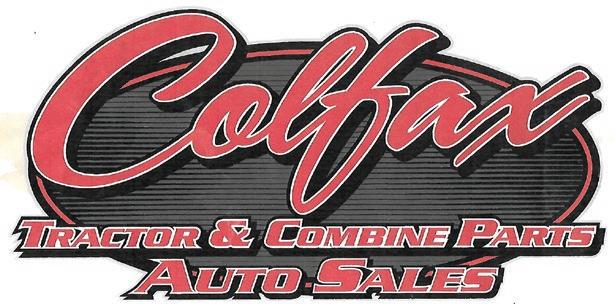




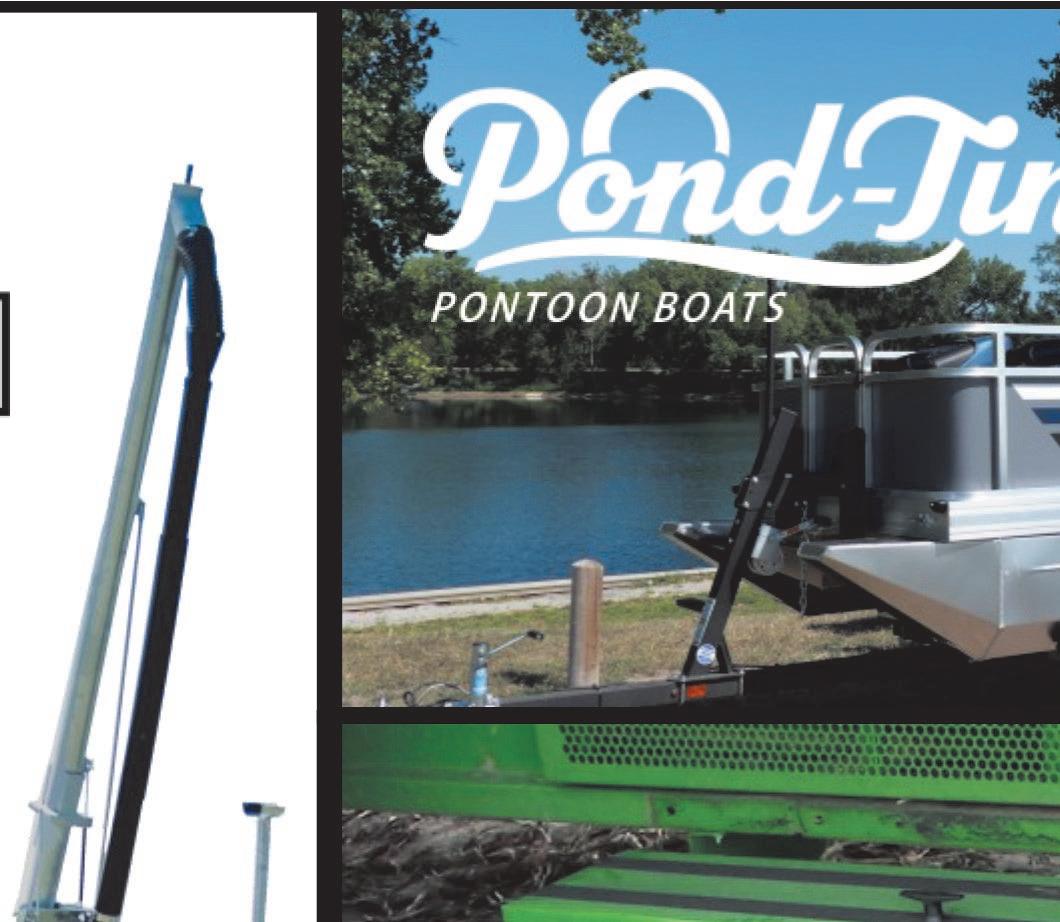
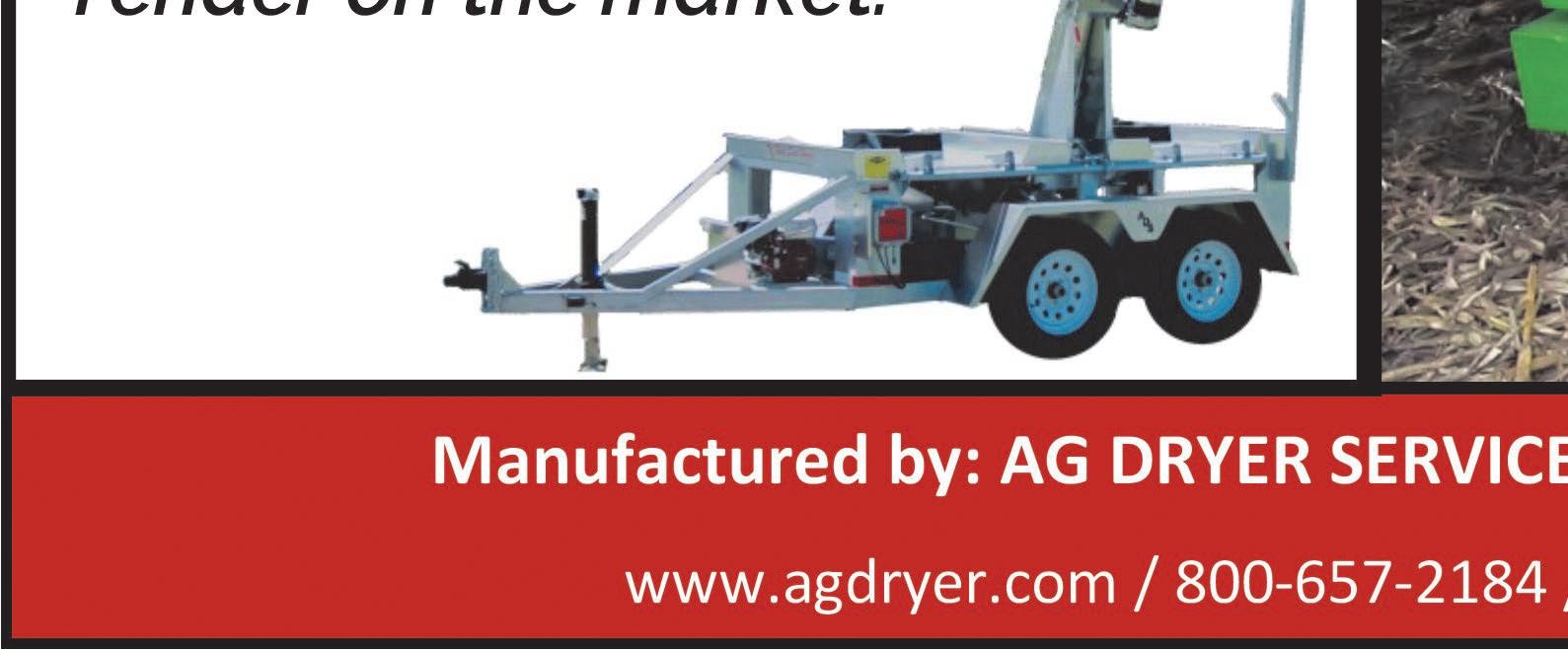








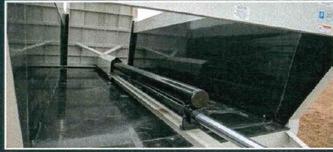
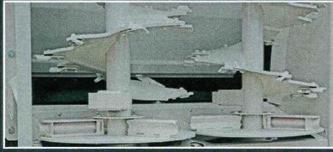






















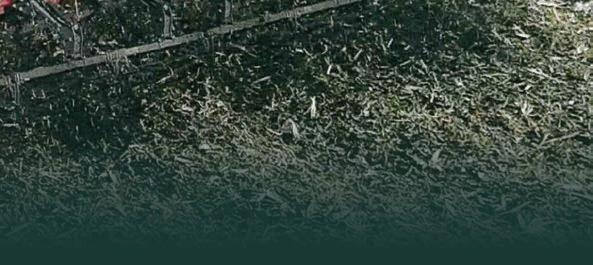













Tony Thompson has had his hand in agriculture from an early age.
Today, he and his mother are co-owners of Prudent Produce, which serves as one of the state's leading food hubs, delivering customized orders to hundreds of Iowa families.

By KRISTIN DANLEY GREINER Farm News writer
Growing up, Tony Thompson loved accompanying his dad around the farm to tackle various chores. But his adventurous spirit won out in his younger years, leading him to Sweden for his master’s degree and then around the world with Habitat for Humanity.
Eventually, Thompson returned to Iowa and his agricultural roots where he continues to farm and serve as a champion for farmers.
“My earliest memories are of being in the tractor or combine with dad around 1983-1985. As a skinny little kid, I got to sit on the 1-by-6 that was cut to length to fit between the window and on the armrest of dad’s seat — no buddy seats back then,” Thompson said.
His earliest solo chores were to make sure the boarded horses had food and water, which included pulling a couple hundred feet of hose out of the basement to their stock tank and pulling it back in so it wouldn’t freeze, he said.
“We had a few hogs, maybe a calf that would end up in our freezer, some chickens, and we boarded a couple of horses,” Thompson said. “The animals kept going even after the row-cropping stopped.”
Thompson’s interests followed the path of sports and computers. His parents found themselves facing financial difficulties on the farm in the mid-1980s, and eventually moved on to pursue other career options, he said.
“I still got to hear stories from both sets of grandparents and all the aunts and uncles, growing up on the farm — long, hot summer days baling hay, cold winter days feeding cattle,” he said.
As a student at North Polk High School, Thompson benefitted from attending one of the first schools in the country to have internet access in 1990. That sparked an interest in technologyrelated projects, including some that were co-sponsored with Ames Lab on the Iowa State University campus. As his senior year of high school drew nearer, Thompson considered attending smaller private colleges in-state.
“I stumbled onto Cornell College’s
“My earliest memories are of being in the tractor or combine with dad around 1983-1985. As a skinny little kid, I got to sit on the 1-by-6 that was cut to length to fit between the window and on the armrest of dad’s seat — no buddy seats back then.”
website and was intrigued by the onecourse-at-a-time calendar they used. That was enough to win me over, and I went off to Mt. Vernon,” Thompson said. “I started out wanting to be able to teach high school computer science. At the time, that required majoring in education, computer science and math or physics, since one could not be licensed to teach computer science. After two years of going down that path, I decided the triple major was too much and focused solely on computer science.”
While in college, Thompson took advantage of many activities available to him, including serving on the student council, growing his religious life, being a three-year resident assistant in the dorms, helping found a chapter of Habitat for Humanity, playing intramural sports and more.
After college graduation, Thompson found himself quickly bored with IT consulting. So after fondly reflecting on his time spent with the Habitat for Humanity chapter on his campus, he decided to volunteer with the organization and headed to its headquarters in Georgia in early 2001. After a structural reorganization, he was hired and stayed with Habitat for Humanity for nearly five years, helping to build houses in South Africa and Fiji.
“The exciting part of my work was organizational capacity building and leadership development,” he said. “Most of my work was building the organizations that built the houses.”
The next step in Thompson’s life
journey was to return to Iowa in 2005, when he decided to pursue his master’s in business administration. However, he couldn’t find an MBA program in America that focused on environmental and social issues, so he looked beyond the border.
“I found a fascinating one-year master’s program in Sweden called Strategic Leadership Toward Sustainability. I jumped at the chance — it was tuitionfree if I paid for my living expenses for a year. So I packed up and moved halfway around the world. I ended up staying there for nearly seven years, completing a PhD in mechanical engineering with a focus on sustainable product-service innovation,” Thompson said.
As he was wrapping up his doctorate and figuring out his next step, he discovered his doctorate work didn’t translate over with the professional engineering credentials required in the U.S. So he was faced with staying in the
academic world or returning to his rural roots and using the asset his family had — the farm.
“When I moved back to Iowa in 2013, I dove into making a living from the land. While our farm had 250 acres of cropped land, it was conventionally farmed by the neighbors and provided mom’s ‘retirement’ income, and I didn’t see a good pathway for getting into row crops. I started growing produce, and by the third year, I had a 100-member CSA (Community-Supported Agriculture system) growing vegetables and eggs. That lasted a couple of years; then I got married and shortly after had kids. I kept my couple of acres going with cover crops and, as time allowed, produce, but much of my income was coming from a ‘town job’ in the IT world,” Thompson said.
He also teamed up with his mom. Together they bought a food delivery business they relocated to the family farm. They retrofitted a building on the farm, bought Prudent Produce, and focused on expanding the market for available local foods. At the same time, Thompson worked as a data scientist with Growers Edge.
“Now, nearly 10 years later, we are one of the state’s leading food hubs, buying foods from over 100 different Iowa producers in the course of a year and delivering customized orders to hundreds of Iowa families,” Thompson said. “Prudent Produce serves as the primary market for whatever food crops I can grow, and I currently have over 300 laying hens. As I have the time, I grow a few other things, including sweet corn,








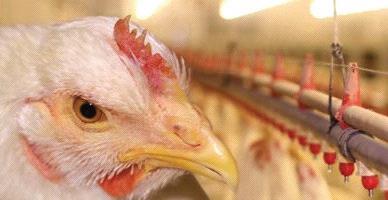











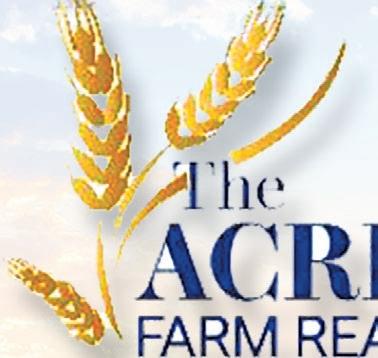








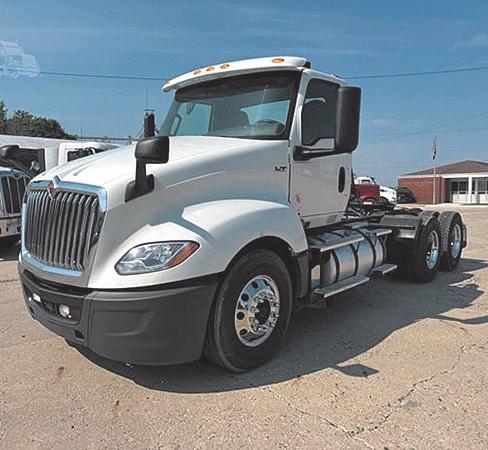

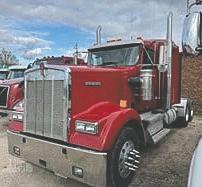
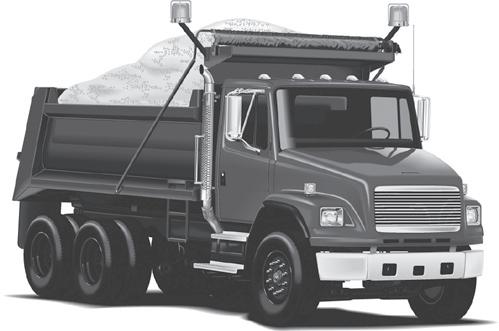
Orthophosphate Starters 6-24-6, 9-18-9, 3-18-18
• Polyphosphate Products 7-21-7, 4-10-10, 10-34-0, 7-18-6-25
• Potassium Acetate Products 7-18-6, 8-21-5, 4-13-17-15 • BIO N - RX


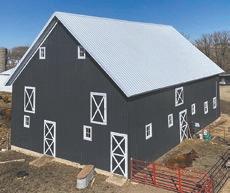

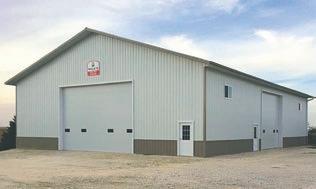
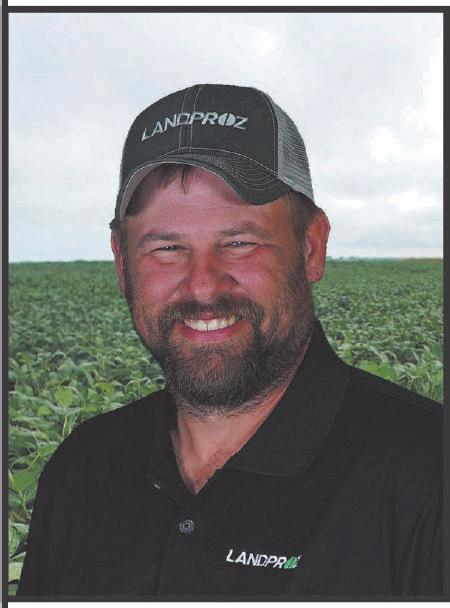




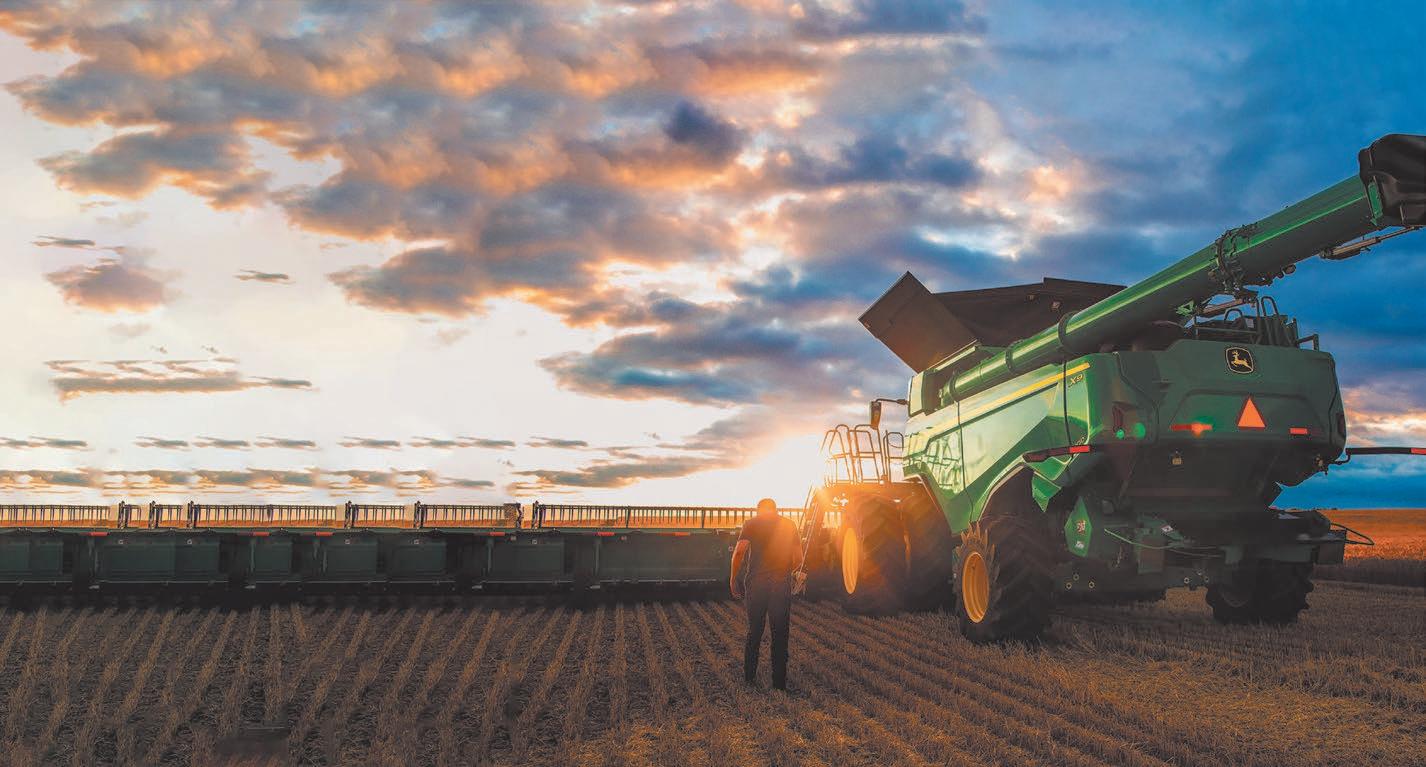










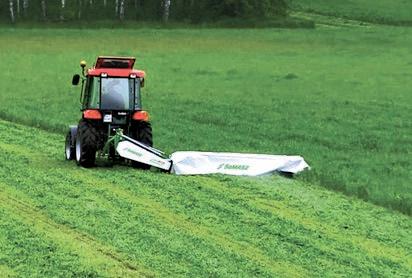




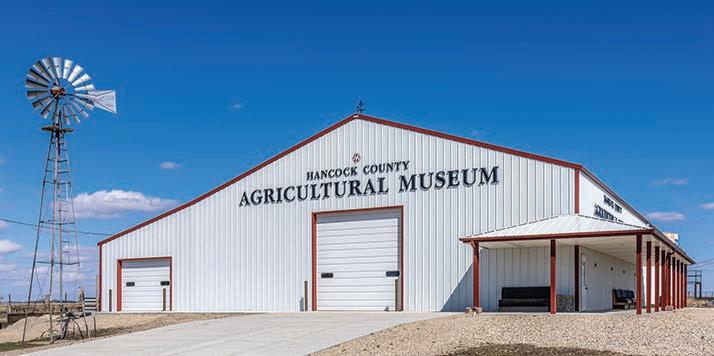


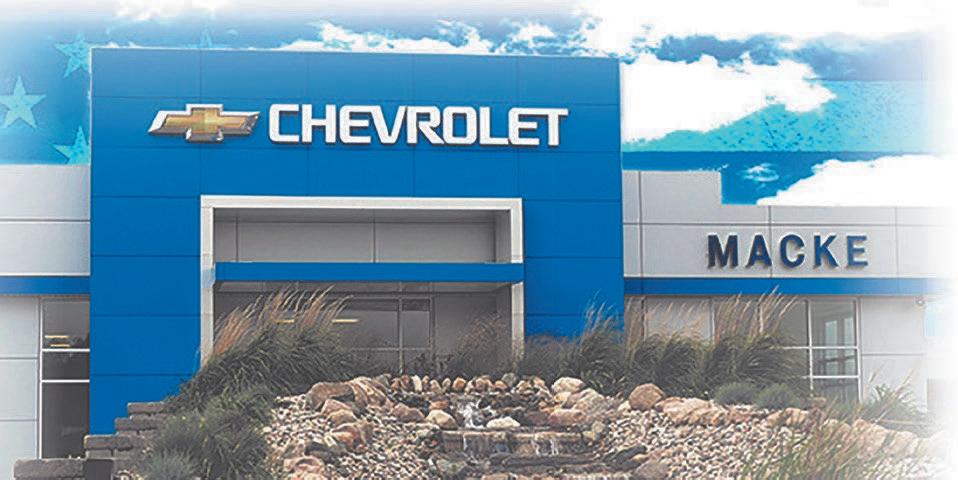
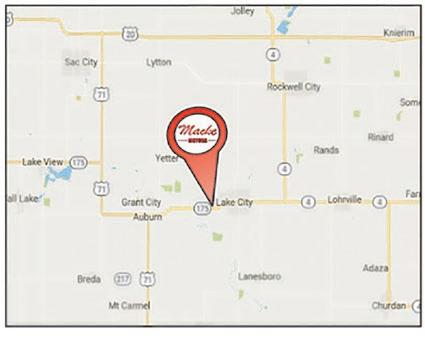
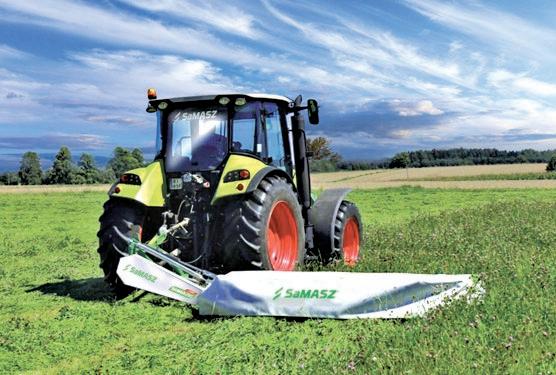


repair majors to gain hands-on experience with the types of welding relevant to their fields.
“I’m proud we can provide this opportunity because many of these careers rarely focus on welding skills, often applying welds that are ‘just good enough,’” she said. “This class teaches students essential welding safety, how to recognize a quality weld, and most importantly, gives them the chance to develop the skills to lay strong, reliable welds themselves.”
Clabaugh added that welding is a large area for ag students, who use welding capabilities by maintaining, repairing, and customizing equipment and structures critical to farm operations.
“From tractor and machines to fences and gates, there is a wide range of ag equipment that depends on welding to be custom built for their need, to be kept in well-working order, as well as being able to innovate farming solutions to everyday problems,” she said.
Clabaugh said she enjoys interacting with her students, who each bring different backgrounds and levels of experience to her classroom.
“Some have been welding on family farms for years and are looking to refine their technique, while others have never picked up a welding gun before,” she said, adding that welding didn’t come naturally to her. “With that, I value the opportunity to teach students the importance of patience, focus, and precision. I draw on my own experience to help them understand that mastering the craft takes time — and that quality is always more important than rushing to get the job done.”
A woman at the helm of the welding program isn’t new to Iowa Lakes Community College, as former instructor Emily Gottsche held that role for many years there. Still, Clabaugh said she has felt fortunate to be able to teach a trade that is still typically thought to be most prevalent in a man’s world.
“I've worked hard to prove myself in the field and have been supported by strong mentors, both men and women, who have helped guide my career,” said Clabaugh. “To the women who do face challenges, my advice is this: lead with your work ethic, take pride in your skills, and let your commitment to quality speak for itself. At

-Submitted photo
MORGAN CLABAUGH, welding technology coordinator/instructor at Iowa Lakes Community College, said welding is a large area for ag students who use welding capabilities by maintaining, repairing, and customizing equipment and structures critical to farm operations.
the same time, never be afraid to stand up for yourself; know your worth, use your voice, and don’t let anyone diminish your place in this industry.”
Clabaugh said most of her students are male, with anywhere from one to five women enrolled each year.
“This past year, I had an outstanding group of both men and women, but what stood out most was the dedication of the female students,” she said. “They were often the ones staying after class or skipping lunch to get extra practice. Their drive and attention to detail were inspiring.”
Clabaugh said she has always found herself in leadership positions. Growing up in Runnells, she was president of her 4-H club and vice president of her FFA chapter, along with other leadership roles throughout her youth.
“My greatest goal has always been to become someone that young girls can look up to, said Clabaugh, adding that too often, girls overlook welding programs in school because they assume it’s a career path meant for boys.
“What they don’t see is the wide range
Clabaugh said during her first year as welding instructor at Iowa Lakes, her students responded well to having a new face in the classroom. And she chose transparency as her platform.
“There were a few welding processes I hadn’t practiced since college, so I was a bit rusty when it came time to teach them. I chose to be honest about my experience, showing them both my good and notso-good welds,” she said. “I worked side by side with them — practicing, troubleshooting, and offering guidance in real time. By the end of the first week, I noticed a significant shift in how they responded. They learned not just from my instruction, but from seeing that even instructors make mistakes and that what matters most is how you handle those mistakes and learn from them.”
Clabaugh, 24, said she wants to expand the program to reach even more students and provide them with a wider range of welding techniques and hands-on experiences.
of opportunities welding can offer. The best friend I started welding classes with in high school is now a pipe fitter, traveling the country and working on large-scale projects,” she said. “Another woman I studied with is creating stunning metal artwork. Welding isn’t just about standing in a factory all day, it’s a versatile and rewarding skill that can lead to countless career paths, and I want to show young women that it’s a path open to them, too.”
Clabaugh said one of the biggest challenges she faced in her first year of teaching was shifting students’ mindsets. She said many were focused solely on laying a good weld, but she wanted them to see the bigger picture.
“True success in this field comes not only from welding skill, but also from the ability to read and interpret blueprints, properly set up and understand their machines, and fabricate with precision,” she said. “It's the attention to these details, combined with a strong work ethic and a willingness to learn that will truly set them apart after graduation.”
“I believe the more exposure students have to different welding processes and fabrication methods, the better prepared they will be to bring valuable skills into the industry. My goal is for every student to graduate from our program not only as a skilled welder but also as a leader, someone who may still be mastering their craft but is confident enough to share their knowledge and support others in their learning journey,” she said.
Clabaugh is preparing to take the Certified Welding Inspector (CWI) exam, and said she would like to be able to help expand the welding department to accommodate more students and offer a broader range of welding disciplines.
For now, she said she appreciates the flexibility her job offers her as a young mother, and also enjoys balancing that with sharing her knowledge and skills with her college students, too.
“There was a point in my youth where I considered welding as a job,” she said, “and now I appreciate it as a meaningful career opportunity to provide for my family as well as provide needed services to my community.”
zucchini, tomatoes, squash, etc., but that has been harder and harder with kids of school age.”
Thompson also has been spending time working to ignite positive change in agriculture. He expressed concern about how “unsustainable” agriculture is economically, socially and ecologically.
“Iowans are unhealthy. We have the second highest incidence of cancer and are the only state where it’s increasing, and it’s clearly from the combination of high-nitrate water, pesticides that we over-apply, and processed food that we over-consume. It doesn’t have to be this way,” said Thompson.
“Our rural communities are failing. I recently received news that the community-owned grocery store in Dayton that Prudent Produce has just recently been in conversation with about partnering has decided to close its doors,” Thompson continued. “This is a loss for the community, both in terms of the local business, as well as in terms of being a place to find fresh food. Healthcare access is increasingly limited and sparse, too.”
Economically, farmers are squeezed from both sides — input suppliers and markets to sell into, Thompson said.
“No wonder farmers are having tough times, and so many are consolidating into larger and larger farming operations,” he added. “Ecologically, what Iowa has become in terms of a two-crop system with some very intensive animal agriculture that relies upon it — is really atrocious. Central Iowa banning lawn watering for lack of sufficient clean
water is a very timely example. We have spent so much time, energy, money and human resources optimizing corn yields that we have completely locked ourselves into this rut that is dependent on an ever-growing market for corn. The longer we stay on the ‘corn is king’ trail, the harder it will be to get out of this rut.
“For our economy, our communities and our personal health — we must diversify what we grow. How much of that is by carrot (creating new markets) or by stick (regulation) will be determined by those with the power to direct each of these,” Thompson added.
The change movement Thompson is pioneering includes connecting people with well-raised local food via the food hub in order to help them eat better and to raise awareness of the importance of eating well.
“While it is small scale, it’s an example of working to expand markets for farmers in Iowa who are raising food for their extended communities in a good way,” he said.
Through his employment with Growers Edge, Thompson has been working to help like-minded farmers adopt better practices through their crop warranty programs, especially for cover crops, nitrogen reduction and developing markets for third crops.
“Much of this is in the very early stages,” he said, “but there’s really great potential here to help make investments in changing farming practices that lead to positive results.”
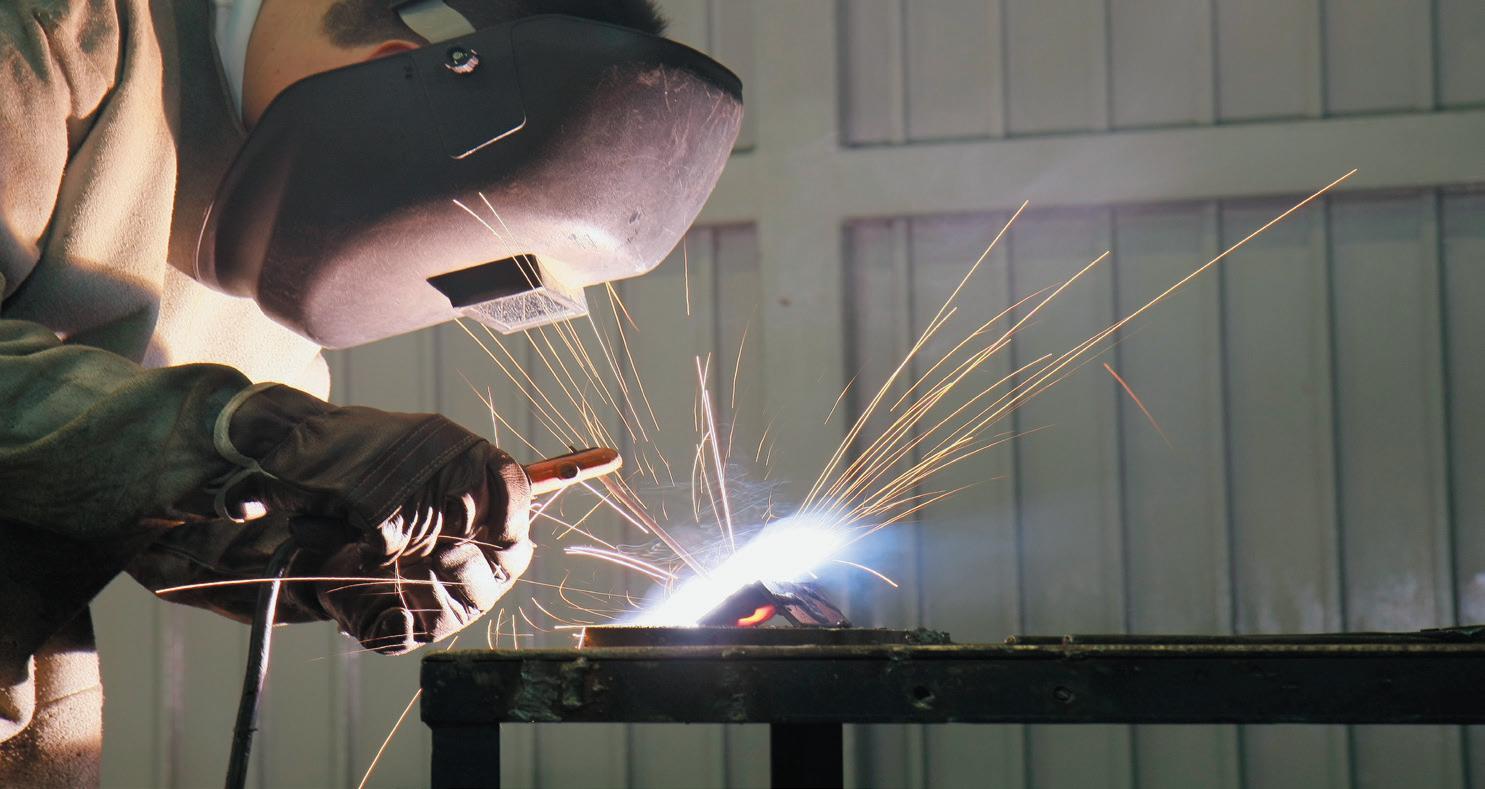
“For our economy, our communities and our personal health — we must diversify what we grow. How much of that is by carrot (creating new markets) or by stick (regulation) will be determined by those with the power to direct each of these.”
— Tony Thompson Co-owner, Prudent Produce


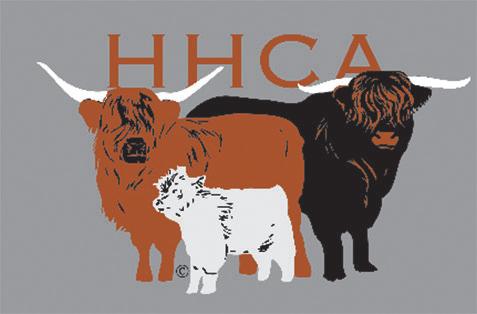

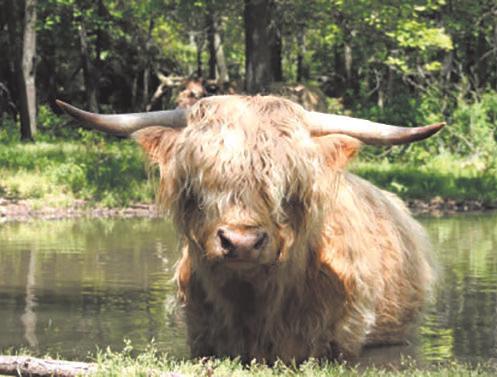
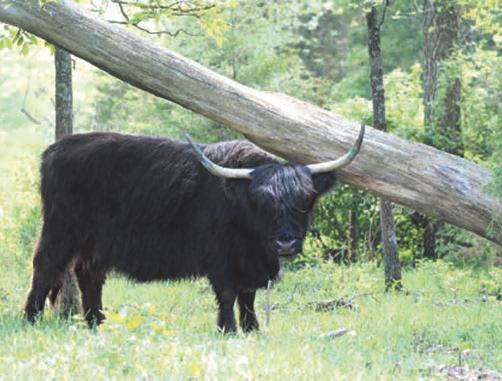
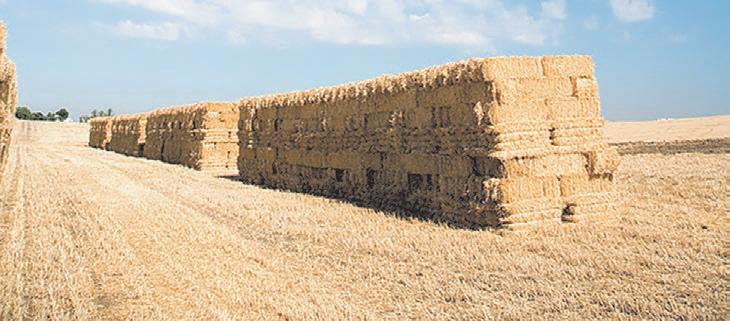




















Tar Gard 1-0-5 Foliar Applied contains biologically derived extracts, enzymes, vitamins, minerals, natural growth regulators and stimulators, amino acids and bases and more. See Photos Below
Ingrained Foliar Applied is uniquely designed to provide bioavailable nutrients directly to your crops. This foliar applied product is stable and electronegativity neutral so as to be nonreactive.
MicroBoost is a unique blend of sugars, proteins, and natural acids. It is designed to enhance photosynthesis, overall plant growth, and microbial activity in the soil. It can be used throughout the season and in various applications
















formation of multiple side branches on treated plants. Plant height is shorter to help reduce the risk of Lodging.
Yield and Shield or Paleopower a proprietary, patented blend of bacterial strain, some of which are of ancient orgins, speci cally selected based on their ability to be sustainable, promote plant growth, restore microbial diversity, and decontaminate soil from glyphosate and other harmful herbicides that might be present in the soil.
Defender T is uniquely designed to provide bio-available nutrients directly to your crops. This foliar applied product is stable and electronegativity neutral so as to be nonreactive .
Branchout Foliar Applied Multiple strains referred to as a cytokins over-producer which triggers the

Weed Terminator 20 and Boost from Contact Organics Combining cutting-edge technology and scienti c research with soil friendly ingredients. It delivers a breakthrough with consistently e ective, environmentally friendly weed control. Weed Terminator 20 is a non-selective bioherbicide using acetic acid as the active ingredient for the control of annual and perennial species.






































































































































































